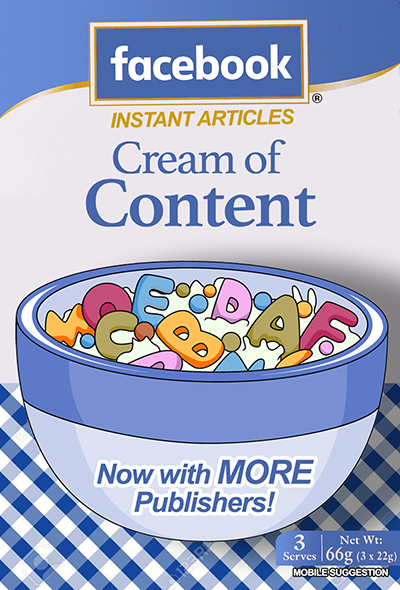More big names in media are backing away from the third-party distribution platform model. It’s a good thing.
 They were one of the first big media names in the U.K. to go all in with Facebook’s Instant Articles. And now, two years later, the Guardian is out, according to Jessica Davies writing in Digiday.
They were one of the first big media names in the U.K. to go all in with Facebook’s Instant Articles. And now, two years later, the Guardian is out, according to Jessica Davies writing in Digiday.
“The publisher ceased running content through both Apple News and Instant Articles today,” Davies notes. She cites a statement issued by the brand to Digiday:
“We have run extensive trials on Facebook Instant Articles and Apple News to assess how they fit with our editorial and commercial objectives,” the statement reads. “Having evaluated these trials, we have decided to stop publishing in those formats on both platforms. Our primary objective is to bring audiences to the trusted environment of the Guardian to support building deeper relationships with our readers, and growing membership and contributions to fund our world-class journalism.”
They’re not alone. As publisher enthusiasm wanes, The New York Times is out too, and other big names are like BBC News, Nat Geo and The WSJ “barely seem to be using Instant Articles either,” Davies notes.
This comes at a time when publisher reach on Facebook is plunging, and discontent is rife. While some brands, Davies explains, are finding some promise on Apple News, it wasn’t enough for the Guardian to keep going there.
Their reasons for pulling out are sound; as the brand pushes a paid membership model, the priority becomes driving traffic to their site, which IA just doesn’t do.
When IA launched two years ago, the potential downside for publishers was significant. The path to monetizing was weak at best, with Facebook getting the lion’s share of revenue for content posted, and publishers seeing referral traffic tanking.
Now, I understand why brands with the resources to do so gave it a try, but IA started feeling the chill pretty quickly.
Is Facebook’s star fading? It’s still a massive company with incredible daily usage – but its effectiveness as a content distribution tool is clearly being called into question. This comes at the same time that publishers are re-embracing paid content models that were wildly disrupted by digital.
From here, it looks like a win for publishers, who can go back to doing what they do well, and get paid for it with a content and ad model that works.
